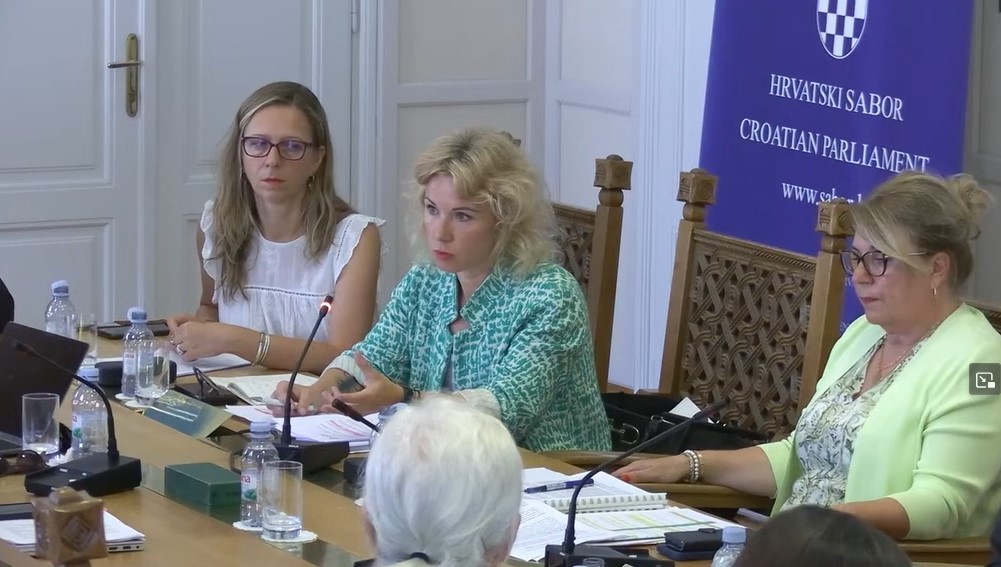Deputy Ombudswoman Dijana Kesonja and Advisor Maja Hasanbašić participated in the session of the Croatian Parliament’s Committee on Environmental and Nature Protection on July 9, 2024.
One of the topics discussed was the implementation of the Constitutional Court’s decision of April 18, 2023, regarding the Decision on the Order and Dynamics of Landfill Closures. The Constitutional Court determined that the obligation imposed on local and regional self-government units to accept waste from other units at their landfills constitutes a disproportionate restriction of the right to a healthy life and a healthy environment.
During the discussion, Deputy Kesonja emphasized that since 2013, the Office of the Ombudswoman has been monitoring the realization of the constitutional right to a healthy life and a healthy environment. In this context, it receives citizens’ complaints and initiates cases on its own initiative, including those related to waste management. These cases highlight challenges in protecting this right, such as delays in opening county waste management centers, issues with the low quality of fuel produced from waste, remediation of environmental black spots, fires at facilities operated by waste management companies, illegal landfills, and others.
Among these complaints are those from residents of Marčelji, a settlement in the municipality of Viškovo, who live near the County Waste Management Center Marišćina. The complaints began arriving in 2018, with residents reporting unpleasant odors since the center’s opening, pointing to air pollution and certain health issues. The actions of the Ombudswoman, together with the persistence of local residents, led to the implementation of an environmental study — specifically, biomonitoring of residents — which confirmed certain negative environmental impacts on citizens’ lung function.
Because of this, and similar situations in other areas, it is necessary to develop health protection programs for local residents and to implement continuous biological monitoring of the population at the sites of waste management centers, environmental black spots, industrial facilities, and other operations that emit pollutants into the environment. This is a recommendation from the Ombudswoman’s 2023 Annual Report, addressed to the Ministry of Health, county governments, and public health institutes.
Deputy Kesonja further added that in planning and designing future waste management centers, it is important to ensure they can accept various types of waste and conduct diverse pre-treatment activities before final recovery and disposal. For existing centers, their adaptability to receive separately collected waste should be assessed in order to maximize their capacity and meet circular economy goals. This would align the operation of waste management centers with the waste management hierarchy.
More information on waste disposal issues and other topics related to the right to a clean, healthy, and sustainable environment can be found in the 2023 Annual Report of the Ombudswoman.
Further details from the Committee session are available here, and the full recording can be viewed here.


